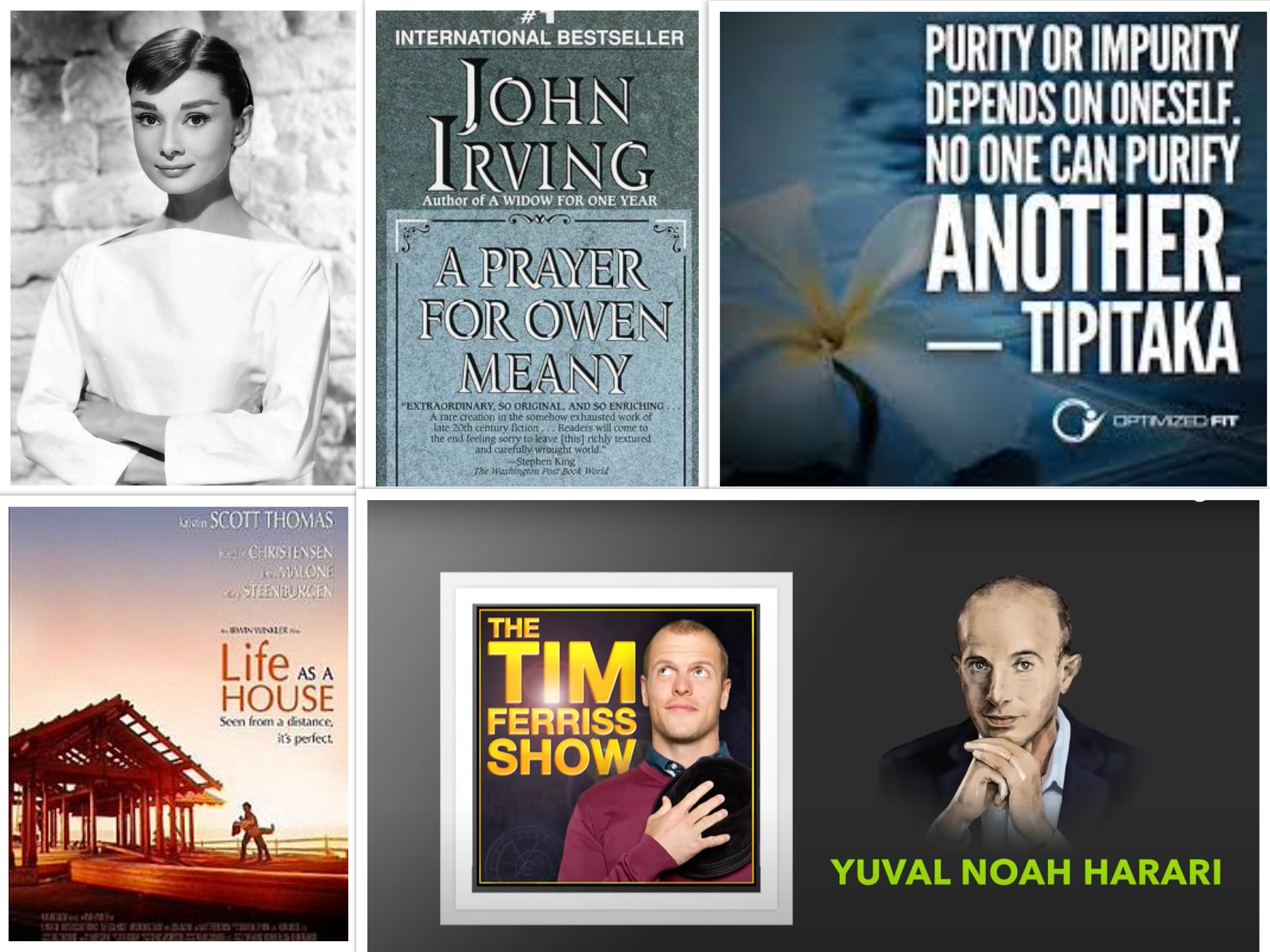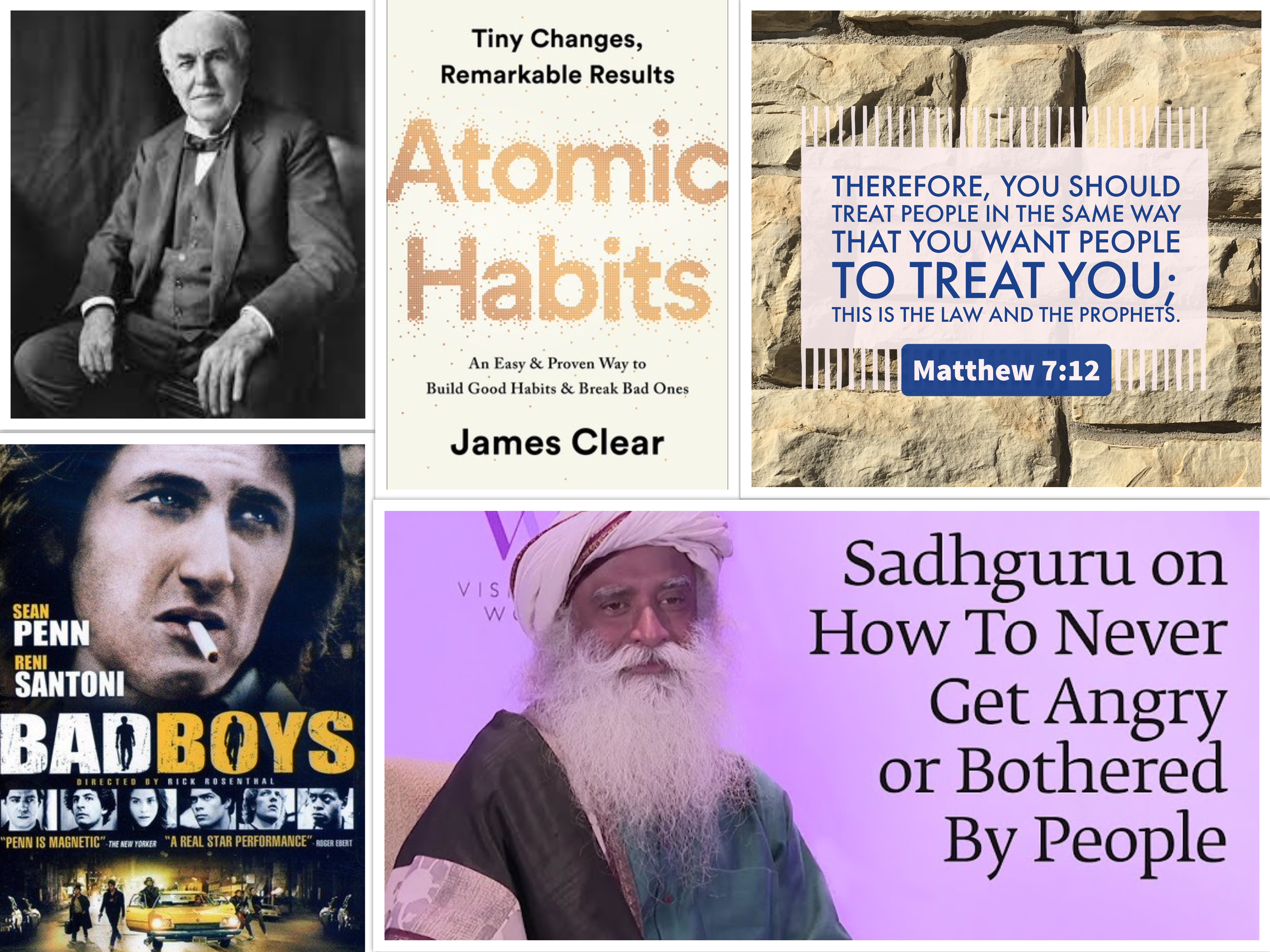Sunday Supplement #9 (July 11th, 2021)
Below is another Sunday Supplement with a quote worth sharing, a book worth reading, a movie worth watching, brainfood worth consuming, and a spiritual passage worth pondering.
I hope you take something away from this post that enriches your week ahead!
Quote of the Week:
“Nothing is impossible. The word itself says I’m possible!”
– Audrey Hepburn
Book of the Week:
A Prayer for Owen Meany – John Irving
By the time John Irving released A Prayer for Owen Meany, he was a known name in the literary community. His work consistently hit multiple bestseller lists, and the film adaptations of his novels received a decent share of Academy Award nominations. A Prayer for Owen Meany was not as favored as Irving’s previous novels, The World According to Garp or The Cider House Rules, but it is arguably his best.
The narrator, John Wheelwright, teaches English at the all-girls school Bishop Strachan in Toronto, Canada. Wheelwright’s present-day narrative punctuates his reflections on his past, where he grew up in the fictional town of Gravesend, New Hampshire. A significant event forever connects John and his childhood friend Owen Meany. That incident also plants the seed in Owen’s mind that he is God’s Instrument. Meany spends the rest of his life to fulfill the fate he prophesied.
The book’s themes of faith, powerlessness, and gender stereotypes jump out vehemently throughout the story. Irving’s literary prose is well crafted and does not come off as wordy or hard to read. It is a beautifully constructed novel that engages and leaves a lasting impression.
I’ve read a few hundred books in my life so far, and this one continues to stand out over the years. It is one of those novels that I don’t always best know how to convince others to read, but it definitely is worth checking out to see if it calls out to you.
Movie of the Week:
When George Monroe is diagnosed with terminal cancer, he decides to take custody of his misanthropic son, Sam, for the summer. George uses his remaining months to repair relationships with Sam and his ex-wife Robin, in addition to fulfilling an old dream to tear down his father’s house and build a new one in its place.
Life as a House has a simple but potent narrative, and all the characters, including the supporting cast, add to the meaningful story. Kevin Kline plays George, and Hayden Christensen makes his film debut as Sam. Both give stellar performances. Supporting actors Kristin Scott Thomas, Jena Malone, Mary Steenburgen, and Ian Somerhalder contribute to the solid ensemble cast.
For Kline, Thomas, and Steenburgen, the film is an under-highlighted gem in their filmography. For Christensen, Malone, and Somerhalder, the film is an early marker for their impressive careers that followed.
The movie did not perform well at the box office or receive many positive reviews. However, it boasts an 88% fresh rating with audiences on Rotten Tomatoes. Both the director, Irwin Winkler, and the screenwriting Mark Andrus, have an impressive resume of classic films— Goodfellas, Rocky, and Raging Bull for Winkler, and an Oscar-nominated screenplay As Good as It Gets for Andrus. It’s curious to see the division between the critics and the positive ratings on various sites given the quality of people involved with the film.
I understand how some critics believe it is more of a Hallmark movie than a blockbuster, but I thought the movie was well done and accomplished its intentions. It explores how we have a choice in our focus and our actions— it is never too late to take control of our lives. I often go back and rewatch the movie when I need a lift and a positive reminder.
If you check it out, let me know what you think.
Brainfood of the Week:
Tim Ferriss’s interview with Yuval Noah Harari on The Tim Ferriss Show.
Another The Time Ferriss Show episode is the focus of this week’s Brainfood. Previous episodes are featured in the first and fifth Sunday Supplements. Ferriss has many other accolades to his name, including six bestselling self-help books, but his podcast is one of my favorite contributions he’s made to date.
In this episode, Tim interviews Yuval Noah Harari. Harari is a historian most known for his bestselling books— Sapiens: A Brief History of Humankind, Homo Deus: A Brief History of Tomorrow, and 21 Lessons for the 21st Century. His books have been recommended by iconic figures like Barack Obama and Bill Gates. At the time the podcast episode was released, Harari’s books had sold 27.5 million copies.
The interview covers a wide variety of topics but mostly centers on Harari’s thoughts on humanity and where we’re headed. He talks about human history and the experiences of suffering and happiness. Another focus in the conversation is how humans create fictional stories and entities to help further our advancement as a species. We even contemplate our futures in philosophy and science fiction.
I’ve read Sapiens, and it is a phenomenal book. I’m positive there are more in-depth historical accounts out there, but I appreciated Harari’s approach in creating an overarching narrative of human history. He is currently working on releasing the bestseller in graphic novel form over four volumes. The second volume is due out in October of this year.
Closing Spiritual Passage:
“Purity or impurity depends on oneself. No one can purify another.”
– Sutta Pitaka
The Sutta Pitaka consists of over 10,000 dialogues from the Buddha and his close disciples.
This particular passage reminds me of the work I need to do for myself. I am blessed to have the support of my family and friends. But, I know that my future is in my control.
It’s easy to lose focus and become depressed or anxious about a current situation. However, there is a wonderful power in knowing that you can change the direction of where you’re going.
I’m doing my best to aim for the best future possible. I want to do more work in this area and dedicate more time to checking in with myself. I believe the time we use to reflect on our lives and our decisions is the filter that helps us heal. I’m grateful for reminders like these that bring a fresh and positive perspective.
Dedicate some time to assess how to best support yourself, and have a blessed week ahead!
1 Comment

